SW-IFL Team Google Calendar
SW-IFL Website
SW-IFL SharePoint Page
Newsletter Sign Up
EM SW-IFL

2024


SW-IFL Team Google Calendar
SW-IFL Website
SW-IFL SharePoint Page
Newsletter Sign Up
EM SW-IFL

2024

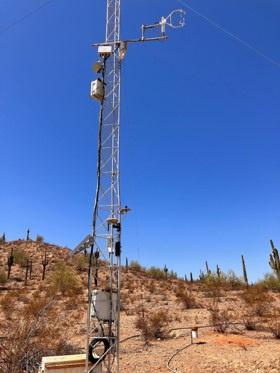
Apr 16-17: DOE ESS PI Meeting
Apr 16-20: 2024 AAG Meeting
May 8: Leadership Team Meeting
May 9: Resilient Solutions Team Meeting
May 10: Modeling Team Meeting
May 14: Cross-UIFL Seminar: Air Quality
May 14: Oracle Test Bed Office Hours
May 17: Observations Team Meeting
Jun 7 - Jul 7: Summer IOPs
Jun 11: Oracle Test Bed Office Hours
Jun 12: Leadership Team Meeting
Jun 13: Resilient Solutions Team Meeting
Sep 25-27 SW-IFL 2024 All Hands Meeting in Tempe, Arizona

Cross-UIFL Seminar Series
Summer Field Campaigns
2024 SW-All Hands Meeting

I am very excited for the entire SW-IFL community! We are only about 6 weeks from the SW-IFL summer Intensive Observation Period (IOP), and things are coming together nicely I really appreciate the hard work and serious coordination that has gone into planning this activity, and the many long days that some of you will be putting in throughout the IOP
We have seen great results from the SW-IFL already, and this summer’s IOP will certainly set the stage for some very impactful outcomes and publications Stock up on your sunscreen and water bottles now!��
Thank you again to the SW-IFL Leadership and all those who contributed to our quarterly progress report to the Department of Energy. Not only was our program manager, Sally McFarlane, very impressed with your accomplishments, so were we.
A special thank you goes out to Ladd Keith (UA), Katia Lamer (BNL), Enrique Vivoni (ASU), and Kevin Gurney (NAU) for their amazing job on presenting the outstanding work of the three research teams
Dave

*If you’d like a physical copy of this newsletter, please contact Shannon Zweig


On February 14th, 2024 Dr Asmeret Asefaw Berhe, the Director of the Office of Science, and a contingent of representatives from the Department of Energy and various national labs, visited Arizona State University’s Tempe campus, giving the SW-IFL team an opportunity to showcase all our recent work

The visit included tours to Enrique Vivoni’s lab and Jennifer Vanos’s biometeorology lab at the Walton Center for Planetary Health While on campus, our visitors were able to discuss SW-IFL research during the poster session held at ASU’s ISTB4's third floor Crater Carpet Area
After lunch, visitors were taken offsite to tour our Maryvale Flux Tower site and visit Estrella Mountain Community College (EMCC) and South Mountain Community College (SMCC)
At the conclusion of the visit, the SW-IFL team garnered a good deal of positive feedback, including a very complimentary note directly from Dr Berhe
The DOE’s visit inspired the following: Questions from SMCC students that highlighted a need for air quality data in the Diné community an overall $8M proposal opportunity to the EPA 11 students from EMCC applied for DOE internship opportunities


ADDRESSING EXTREME HEAT AND ASSOCIATED ENVIRONMENTAL AND SOCIETAL STRESSORS THROUGH RESILIENT SOUTIONS & NEXTGENERATION PREDICTIVE TOOLS
David Sailor, ASU
Jean Andino, ASU

The four Department of Energy’s Integrated Field Laboratories have come together to offer a Cross-Urban Integrated Field Laboratory (UIFL) Seminar Series These are 90 minute webinars that incorporate two presenters from the IFL’s on various topics. The objective is to facilitate technical exchanges and collaborations between the DOE’s UIFL teams, and they are recorded and open to all.
The next scheduled webinar is on Air Quality and is scheduled for May 14th at 9:30 MST via Zoom You can find the webinar’s Zoom link in the SW-IFL Google Team Calendar.
The inaugural session on Climate Projections occurred on February 13th, 2024 and was presented by Rao Kotamarthi from the CROCUS team (Chicago) and Matei Georgescu from the SW-IFL team (Arizona) If you would like to view the recording, you can do so HERE
The CMAS2 mobile lab is ready for its first field deployment! In June, the CMAS mobile labs and the Brookhaven National Lab team, led by Katia Lamer, will roam the streets of Phoenix and Tucson collecting new observations of the atmosphere and of land and building surface to help answer questions related to extreme heat as it relates to community resilience.

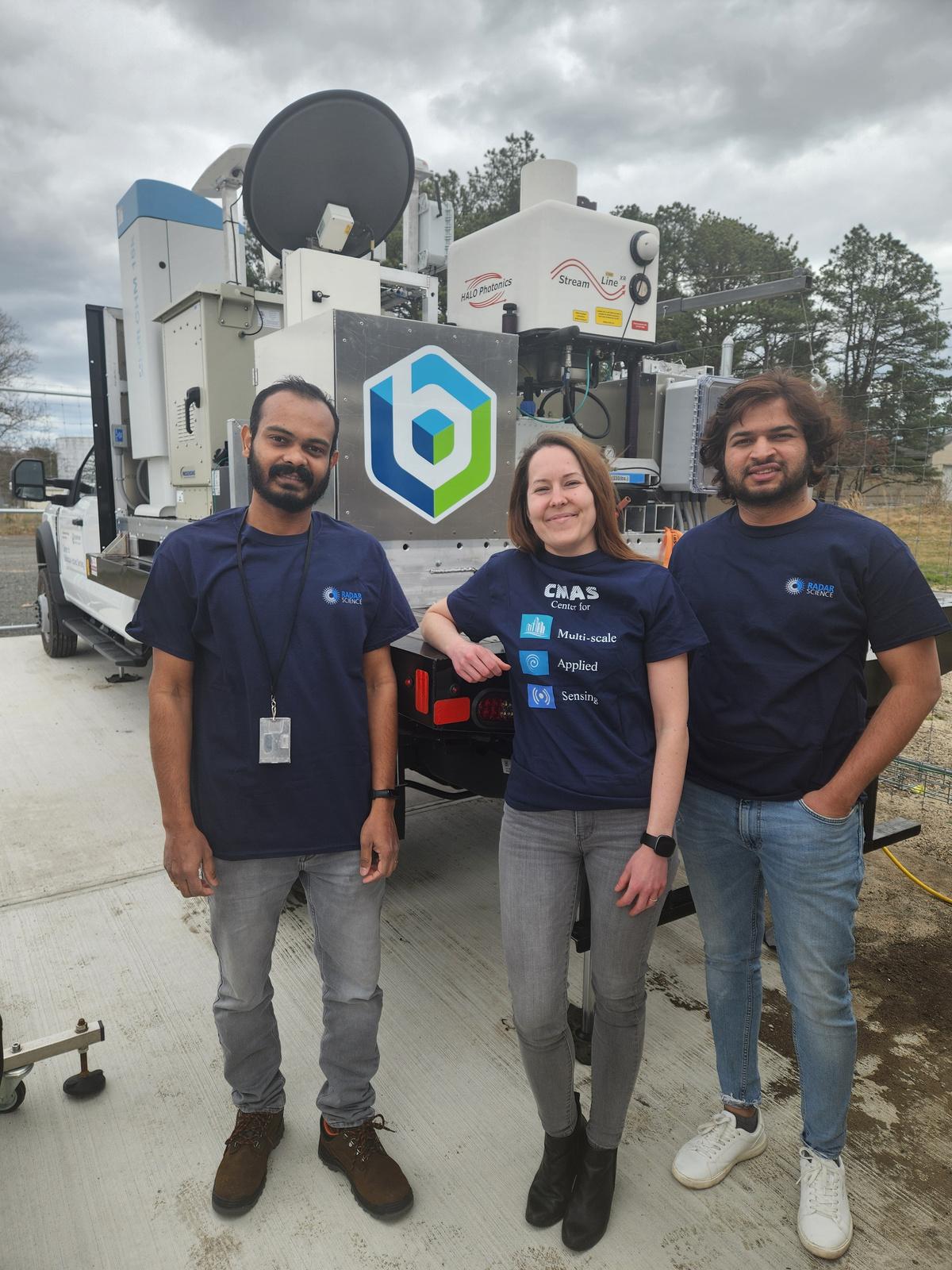

Check out the Southwest Integrated Field Laboratory’s new logo, courtesy of the Department of Energy.
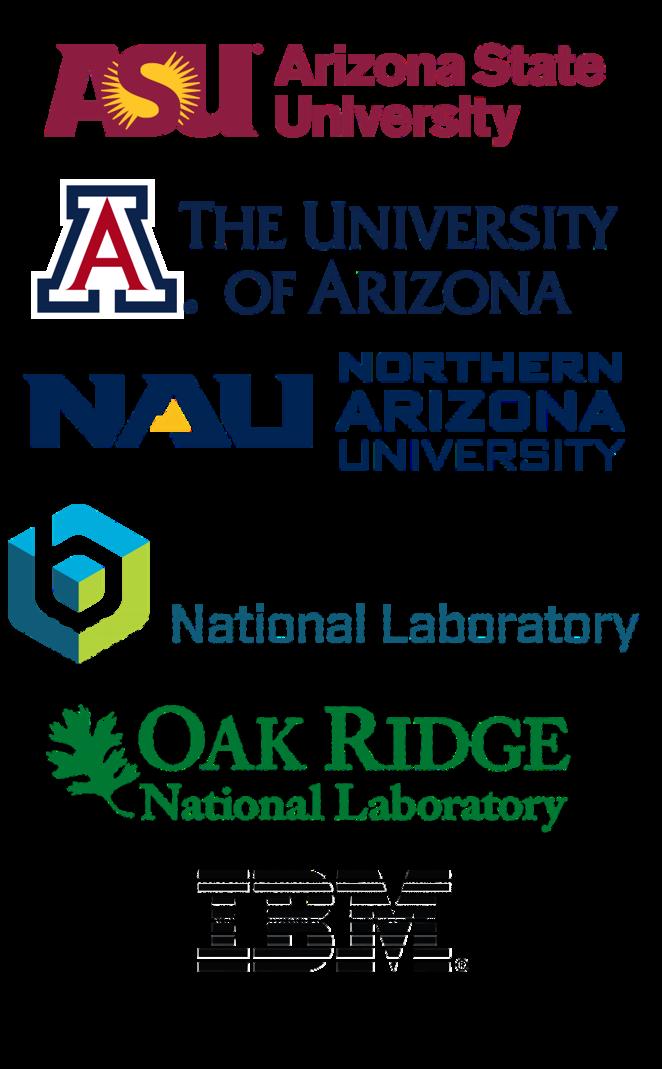
 Above: CMAS2 mobile lab Right: BNL Team
Above: CMAS2 mobile lab Right: BNL Team

As SW-IFL researchers span five different organizations, we have created a SharePoint page that captures important links, such as the SW-IFL Google Team Calendar, the SW-IFL Project Master, IRB Process, and many, many more in one location
On January 25th, emails were sent to the SW-IFL team and Advisory Board This email for non-ASU staff (see example below) contained a link to set up your password on the login page. If you did not receive this email, please check your spam folder. You may contact Shannon Zweig (Shannon Zweig@asu edu) to re-issue your invitation to establish your account

Once you click on the link, it should take you to the login page Please use the email your account confirmation was sent to as this will be the email address associated with your account. You will need to create a password. Once you have completed the email and password fields, click on the maroon “SAVE” button
You will be taken to the following screen (see below), where you can click on the down arrow in each section to expand. If that screen does not appear, refresh your page or go to: https://sw-ifl asu edu/user to login
Please bookmark https://sw-ifl.asu.edu/user to access this SharePoint page moving forward


ADDRESSING EXTREME HEAT AND ASSOCIATED ENVIRONMENTAL AND SOCIETAL STRESSORS THROUGH RESILIENT SOUTIONS & NEXTGENERATION PREDICTIVE TOOLS
David Sailor, ASU


Ladd Keith, UA
Patricia Solis, ASU

Team members continue to work with community partners to develop testbed activities and interventions that address SW-IFL research objectives and community partners’ needs.
Team members have developed a preliminary schedule for measurement activities that will take place in the testbeds across the SW-IFL during the summer Intensive Observation Period
Oracle Road Corridor Testbed: Summer 2024 Focus Areas include home thermal security, green stormwater infrastructure interventions, cool pavement interventions, and air quality.
Jackson Street Testbed: Summer 2024 Focus Areas include 3M reflective film on roof and living conditions of the residents
URBAN RESIDENTIAL DISCOVERY
Continued to identify specific sites for household recruitment for home thermal security research activities
Initiated collaboration to explore funding through HUD's Preservation and Reinvestment Initiative for Community Enhancement (PRICE) competition
MOBILITY DISCOVERY
Submitted IRB Human Subjects Research Application for initial university review. Once approved, this will allow for access to the National Household Travel Survey’s (NHTS) limited dataset
Prepared archived weather data and now refining that data to merge it with the National Household Travel Survey’s (NHTS) limited data set as part of the SW-IFL Travel Behavior Survey.
Completed a literature review, which will be submitted to the USDOT as part of Ashley Avila’s Eisenhower Transportation Fellowship.
PLANNING DISCOVERY
Completed data analysis for the cities of Flagstaff, Nogales, and Casa Grande for the Plan Evaluation for Heat Resilience reports, which includes the plan analysis results from the Plan Integration for Resilience Scorecard™ (PIRS™) for Heat and Plan Quality Evaluation for Heat Resilience.
ASU Urban Climate Research Center Poster Event presentations: Malini Roy, “Spatial Patterns of Heat Mitigation Planning,” first prize for the postdoctoral category
Karlie Barrett, “Plan Evaluation for Heat Resilience,” third prize for undergraduate category.
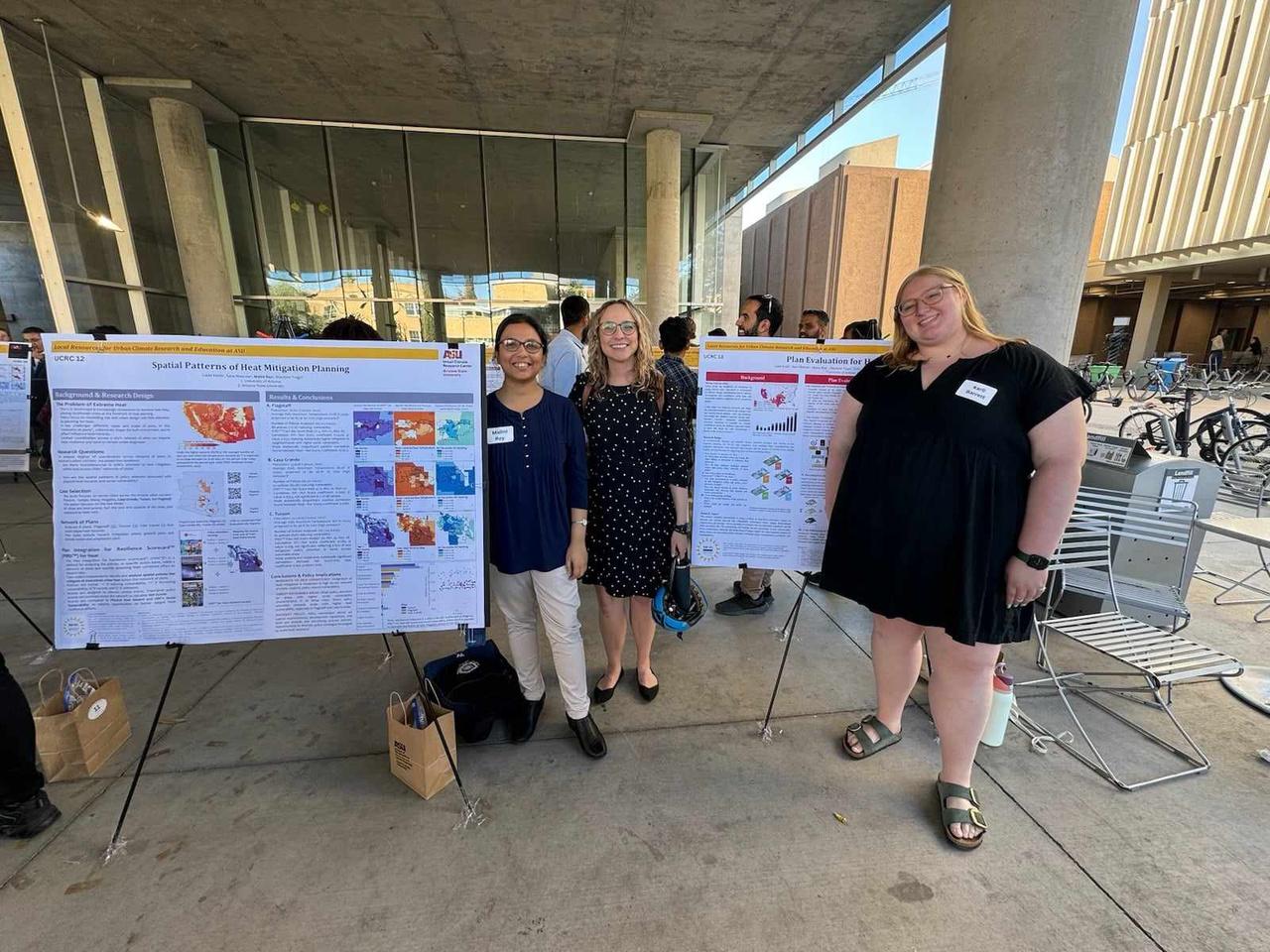
ASU Urban Climate Research Center Poster Event. Malini Roy, Sara Meerow, and Karli Barrett.

PIRS™ for Heat results for Phoenix
Ladd Keith, UA
Patricia Solis, ASU
DISCOVERY FELLOWS & HEATMAPPERS

Three Discovery Fellows have been recruited and selected to provide embedded support to the three SW-IFL research teams
Students have been recruited and finalists have been selected for the HeatMappers program.
K-12 ENGAGEMENT
Arizona Project WET initiated the development of 4th grade Arizona STEM curriculum, which will be included in educator workshops with the statewide Water Festivals.
ADDITIONAL PRESENTATION
“Assessing Cool Corridor Heat Resilience Strategies for Human–Scale Transportation.” National Institute for Transportation & Communities Virtual Kristi Currans and Ladd Keith March 14, 2024
Testbeds: First summer Intensive Observation Period in partnership with stakeholders and community and media outreach
Urban Residential Discovery: First summer data collection, May - June
Mobility Discovery: Analysis of weather data and National Household Travel Survey (NHTS)
Planning Discovery: Complete and deliver Plan Evaluation for Heat Resilience reports to Flagstaff, Nogales, and Casa Grande
Complete data analysis for Mesa Plan Evaluation for Heat Resilience report. Pilot multihazard planning evaluation
Discovery Fellows & HeatMappers: Discovery Fellows to be placed in research sites March – August, HeatMappers orientation is scheduled May 7-9.
K-12 Engagement: Arizona Project WET and SW-IFL researchers will finalize choices for STEM curriculum that includes SW-IFL research area content

Enrique Vivoni, ASU
Ted Schuur, NAU
Katia Lamer, BNL
Urban Network Expansion

In collaboration with CAP-LTER, established operational eddy covariance systems at three Arizona locations and registered them with DOE AmeriFlux Network data comparison used overlapping data sets since early February 2024
Desert Botanical Gardens - remaining open desert in city, with nearby urban land covers Maryvale - low rise residential Phoenix neighborhood
Encanto Golf Course - Managed and irrigated turf grass facility by City of Phoenix
Annual Plants Record Urban CO2
Annual plants collected and analyzed for radiocarbon as a metric of fossil fuel combustion in the urban environment.
Flagstaff: Most extensive collection and analysis (Spring, Summer, Fall 2023) reveals urban fossil fuel use and spatial gradients on 10s of meters
Phoenix and Tucson: Preliminary collection and analysis (Spring 2023) shows imprint of urban activities.
Community Science
iNaturalist app offers an app platform to identify and geolocate annual plants Plant IDs are verified and stored as Projects, curated by SW-IFL> Initial test case was NAU capstone class (Fall 2023) of community-generated annual plant samples using iNaturalist app. Training sessions in Phoenix and Tucson are scheduled in March 2024 for SW-IFL Discovery Fellows and other scientists.
Intensive Observation Period (IOP)
CMAS2 is ready to roll for our Summer Intensive Observation Periods. This second mobile lab can be deployed on a truck, rooftop, ground, and fastened to rental vehicles using a universal clamp system A fact sheet on the two CMAS mobile laboratories is available. We are finalizing our IOP plans with innovation deployment strategies that align with stakeholder needs We are collaborating with the modeling team on optimal experimental design study using Weather Research and Forecast (WRF) and machine learning techniques for Earth sciences.
Reflective Roadway Spectrometer Measurements (2020-current)
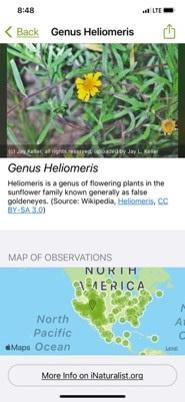
Merging data from 2020 through current to track the solar reflectivity, or “cool” roadway surface across City of Phoenix in comparison to traditional asphalt.
Urban Network Expansion
Seeking additional potential sites for a tall eddy covariance tower in a high-rise urban setting or near a transpiration corridor, along with mobile deployment locations for summer 2024 IOPS, including sites in Tucson and Phoenix metro area Also requested an AmeriFlux Rapid Response Flux System with H2O, Co2, and CH4 for summer 2024 IOP
Hydrometeorological Data Collection
Collection of weather station data from MesoWest and Flood Control Districts
Collection of discharge data from Flood Control District of Maricopa County
Initial cross-comparison of gridded datasets with ground observations in urban areas
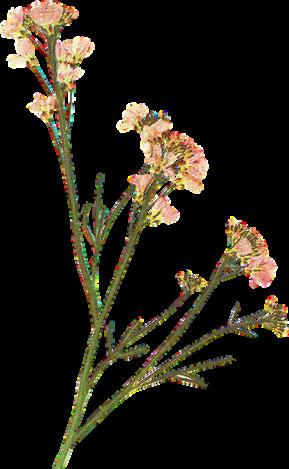
Community Science Expansion
Extensive annual plant sampling in all three regions (Flagstaff, Phoenix, Tucson) planned.
Flagstaff sampling will be conducted using community science via NAU capstone class (Spring 2024)
Phoenix and Tucson sampling with be conducted using community science in conjunction with Discovery Fellows (Spring 2024).
Additional sampling during IOP and at permanent monitoring sites conducted by NAU SW-IFL personnel
iNaturalist app screenshotKevin Gurney, NAU
Matei Georgescu, ASU
Modeling
Data completed for supporting microclimate building simulations, including: Grid cell parameter definitions/creation
Basic grid cell parameter constructions based on MAv1 data aggregation for Arizona
Extended grid cell parameter constructions based on MAv1 data aggregation for Arizona.


MAv1 data via ESS-Dive: New J ; Bass B ; Berres A ; Clinton N ; Adams M ; Li F ; Stubbings A ; Chowdhury S (2021): Model America: Data and Models for every U.S. Building. Southwest Urban Corridor Integrated Field Laboratory (SW-IFL), ESS-DIVE repository Dataset doi:10 15485/2283980 accessed via https://data essdive lbl gov/datasets/doi:10 15485/2283980
Model for Prediction Across Scales (MPAS) to Weather Research & Forecasting Model (WRF)
Conducted MPAS sensitivity test with Initial condition (IC), Sea Surface Temperature (SST) and Lateral boundary conditions 9LBC) updates from ERA5 (ERA5 provides hourly estimates of a large number of atmospheric, land and oceanic climate variables. Validated and analyzed WRF simulations outputs.
WRF MBEM (Multilayer Building Energy Model)
The urban met across Arizona has been simulated twice with multilayer building energy model (MBEM) dynamically coupled to WRF model at 2-km horizontal grid spacing throughout JJA 2020.
The urban met across Arizona has been simulated at 1-km horizontal grid spacing for the same JJA 2020 period
Fossil Fuel Carbon Dioxide Emissions
Anthropogenic heat for all sectors is complete, but more visualization processing is needed
Model of Models
Continue development of MPAS-WRF-ERA5 framework and evaluate data assimilation approach.
Continue development of reduced order version of Model of Models (MoM).
Finalize rough draft of two manuscripts centered on MoM development
Hestia Emissions Suite
CO2 emissions (other than onroad) to the asset scale/annual.
All gridded (1 km squared) CO2 and Air Quality (AQ) to hourly timestep CO2 onroad at poly line scale (roads) hourly.
Anthropogenic heat estimation to asset scale (gridded as well at 1 km squared).
Draft Arizona FFCO2/heat manuscript with urban area focus


Apr 4, 2024:
DOE’s Environmental System Science Data Infrastructure for a Virtual Ecosystem (ESS DIVE) team is seeking feedback on data storage needs as well as procedures / systems that would improve the submission of data to the ESS DIVE platform. IFL input is critical to this process, so please submit your ESS Dive Feedback to Jean Andino (jean.andino@asu.edu) by April 4th.
Apr. 16-17, 2024:
Department of Energy Energy’s Environmental System Science (ESS) Program’s Principle Investigators’ Meeting in Reston, Va
May 7, 2024:
2024 Discovery Fellows are placed in research sites and will work through August 31, 2024
2024 HeatMappers cohort begins and they will complete research fieldwork by August 31, 2024
May 14, 2024:
Cross-UIFL Seminar series: Air Quality via Zoom at 9:30 am MST Presenters are Pawel Misztal (SETx-IFL), Kirsten Koehler (BSEC) and Peter DeCarlo (BSEC). The quarterly webinar will be 90 minutes, with time for two presentations and questions.
Jun. 6 - Jul. 7, 2024:
2024 Summer Field campaigns for our Intensive Observation Period (IOP). Research activities will span all three locations: Flagstaff, Phoenix, and Tucson. Community and Media outreach is currently being planned.
Sep 26-27, 2024:
Mark your calendars for the SW-IFL 2024 All Hand Meeting hosted by Arizona State University at the Tempe campus. More information will be coming soon!
SW-IFL Team Google calendar
SW-IFL Website
SW-IFL SharePoint Page
SW-IFL Newsletter Sign Up
Email SW-IFL
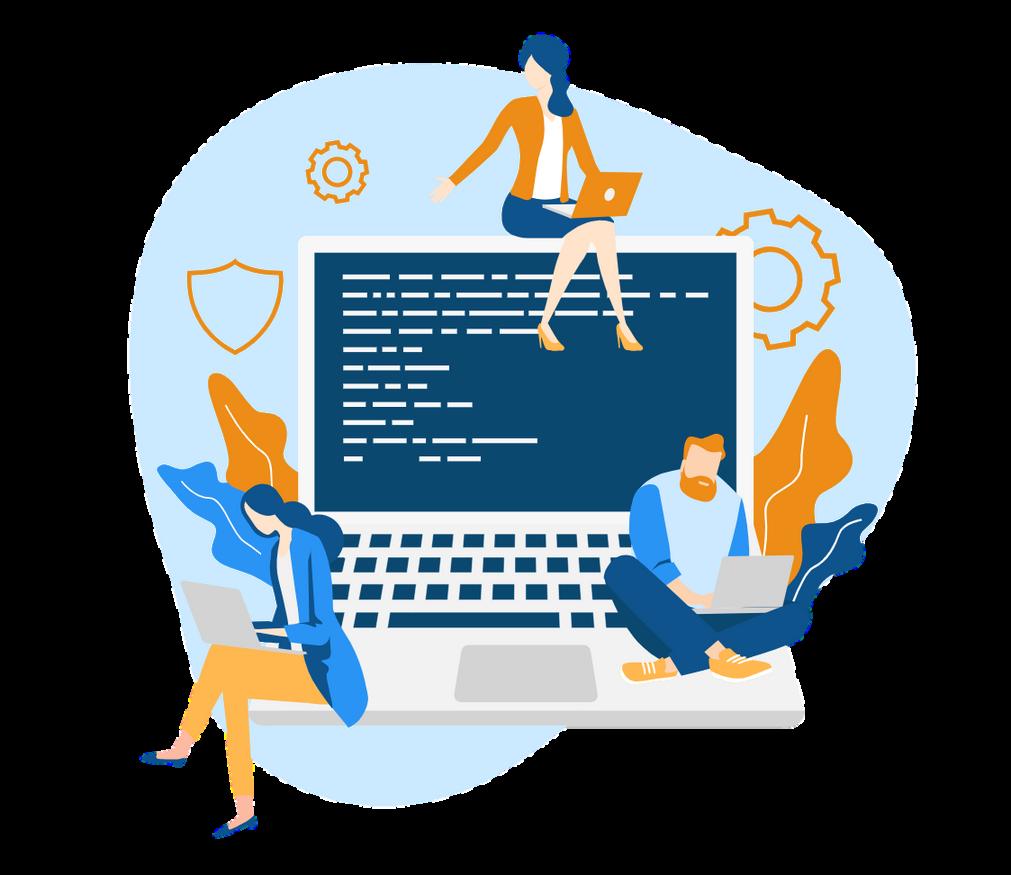
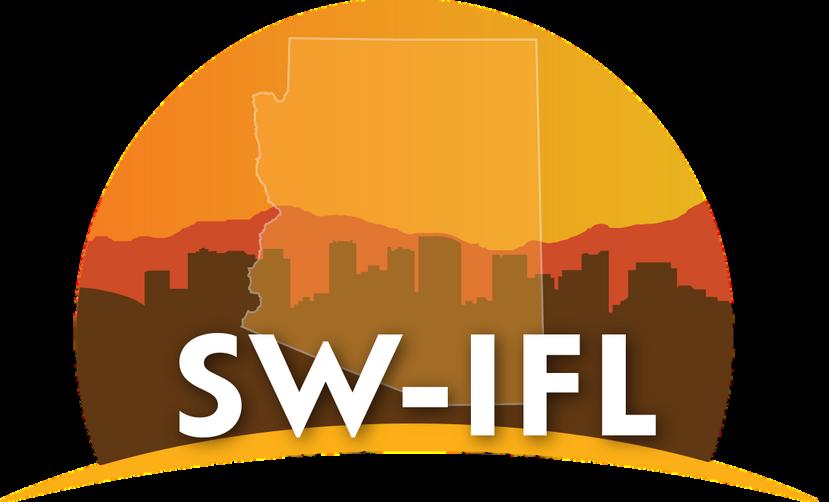
ADDRESSING EXTREME HEAT AND ASSOCIATED ENVIRONMENTAL AND SOCIETAL STRESSORS THROUGH RESILIENT SOUTIONS & NEXTGENERATION PREDICTIVE TOOLS
David Sailor, ASU
Jean Andino, ASU

